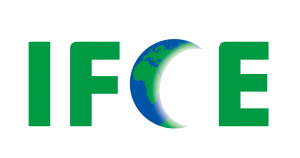Progress Reports on China’s Climate and Environment &
2019 International Fund for China’s Environment New Year Reception
Release Date : 2019-02-20
The 2019 International Fund for China’s Environment New Year Reception and Progress Reports on China’s Climate and Environment was held in Washington DC on February 12, 2019. Around 60 scholars, governmental officials, business leaders and non-government organization representatives from the U.S. and China attended the reception. The event was organized by the International Fund for China’s Environment (IFCE), and sponsored by Beveridge & Diamond law firm in Washington DC.

New Year Reception Group Picture
The Program Director of IFCE, Ms. Xingyu Wang, opened the reception by welcoming all of the speakers, media representatives and attendees. Ms. Wang pointed out this year marks the 23rd anniversary of IFCE. For the past 23 years, IFCE has been aiming at ensuring a healthy global environment and economic development by helping China and the world dealing with environmental challenges. As the two largest economies, the United States and China can set the tone for a global effort on environment protection and climate change by investing in clean-energy technology, adopting strict environmental regulations, developing carbon trade systems and so on.

Ms. Xingyu Wang made remarks
Mr. Mei Dewen, President of China Beijing Environment Exchange, spoke about progress on national carbon trading in China. Mei gave some statistics on pilot markets' trading: In the past five years, the carbon trade in seven pilot markets amounted to 270 million tons of carbon dioxide, with sales of 6 billion yuan. In Beijing alone, over 1,000 enterprises made transactions on this platform. Carbon trading markets have made important contributions to China's energy-saving and emission-reduction efforts. Mei thinks that carbon trading systems provide a kind of market mechanism. They can promote energy conservation and emission reductions at a low cost and with high efficiency. By establishing property rights and setting pricing for environmental resources, China can turn these green resources into green assets. This is a cost-effective way. He also introduced progress of the Voluntary Carbon Market and Personal Carbon Account in China.

Mr. Mei was delivering the speech
Dr. Ming Yang, Senior Climate Specialist from Global Environmental Facility/World Bank, gave a speech on Programming Direction of Global Environmental Facility (GEF) for China. Dr. Yang pointed out that over the past 27 years, the GEF has financed 166 projects in biodiversity, climate change, chemicals and wastes, international waters, land degradation, persistent organic pollutants, and multiple focal areas in China. With these projects, the GEF provided $1.24 billion grant and mobilized $12.59 billion co-financing from the government, the private sector and other stakeholders in China. These projects have significantly contributed global environment protection and massively mitigated China’s local pollution including air and water pollution. Going forward, the GEF will continually focus its investments in areas where it can help catalyze the necessary change in key systems and leverage multi-stakeholder coalitions in alignment with countries’ demand and commitment, and GEF needs to work with China to protect our planet.

Dr. Ming Yang was giving the report
Dr. Ping He, President of IFCE, gave a speech on IFCE’s Efforts on combating smog in China. Since smog breaking out in 2013, IFCE experts found that defective wet desulfurization process is the main cause. Many professionals and experts in China also confirmed the observation. In 2018, with support of the Ministry of Science and Technology, IFCE worked with Xuzhou city, launching a pilot project to reduce moisture and mitigate white flue gas emitted from wet desulfurization in power plants as one of key measures in the city’s campaign to mitigate air pollution. The moisture control devices have been installed on all twelve power plants in the city. The project was completed at the end of 2018 and positive results were achieved. Under the influence of IFCE experts and practices, local leaders gradually realized the problems of the wet desulfurization. In 2018, seven provinces/cities issued local regulations to curb the white flue gas, which was an unprecedented action in China, as localities normally do not set environmental requirements other than those demanded by the central government. A few cities like Tangshan and Handan of Hebei province with high concentration of steel and coking industries has set deadline to treat white flue gas by the end of 2018. In the new year, IFCE will work with partners in China on developing white flue gas treatment guidance/standards, enhancing technology and disseminating the methodology, and put China’s smog mitigation on the right track.

Dr. Ping He was talking about smog control in China
IFCE signed a strategic partnership agreement with Shenzhen Yuepeng Environmental Tech Company (Yuepeng Environment) not long ago. At the reception, Mr. Tad Ferris of IFCE’s vice chairman present a certificate to Mr. Yide Liu, the Chairman of Yuepeng Environment.


